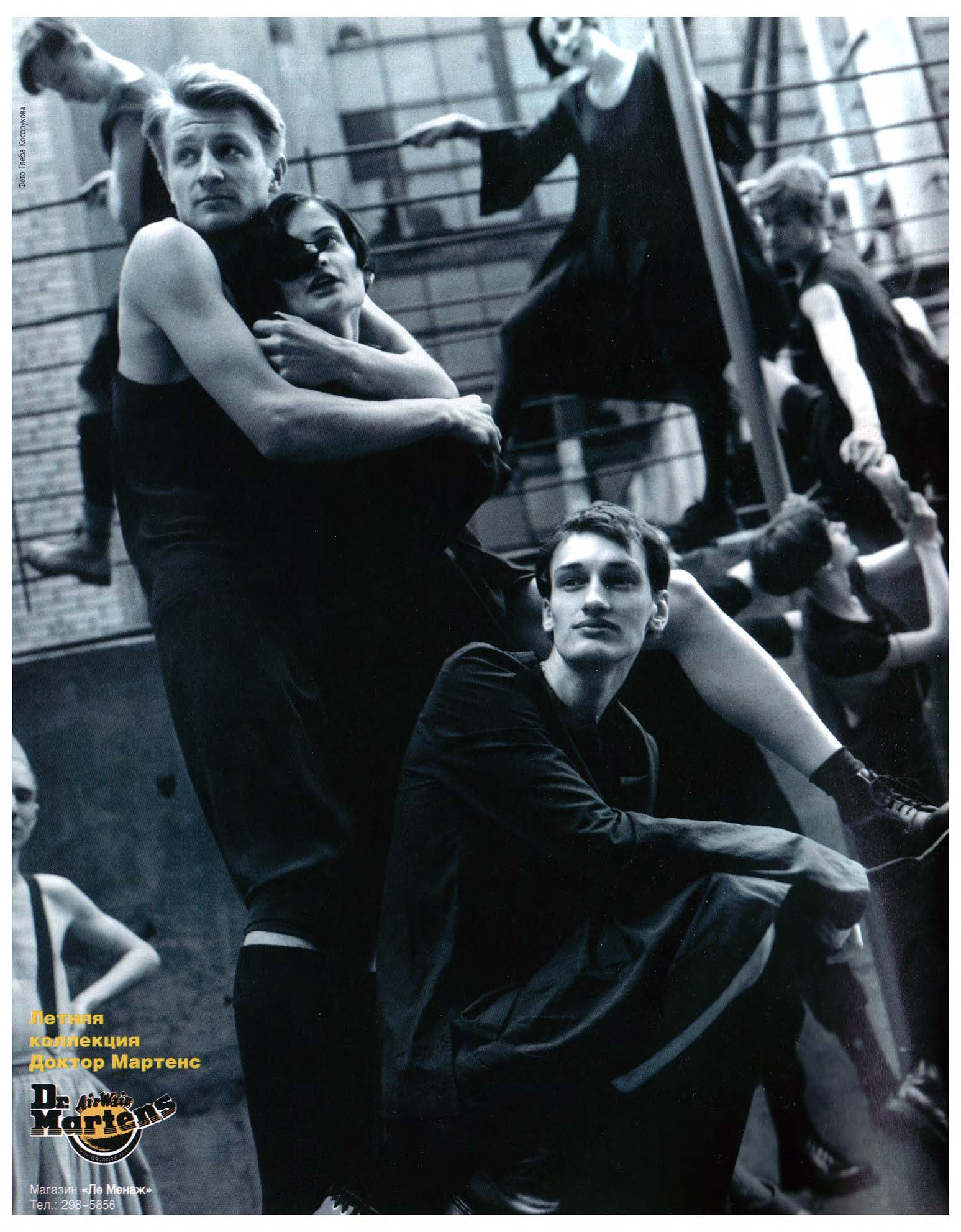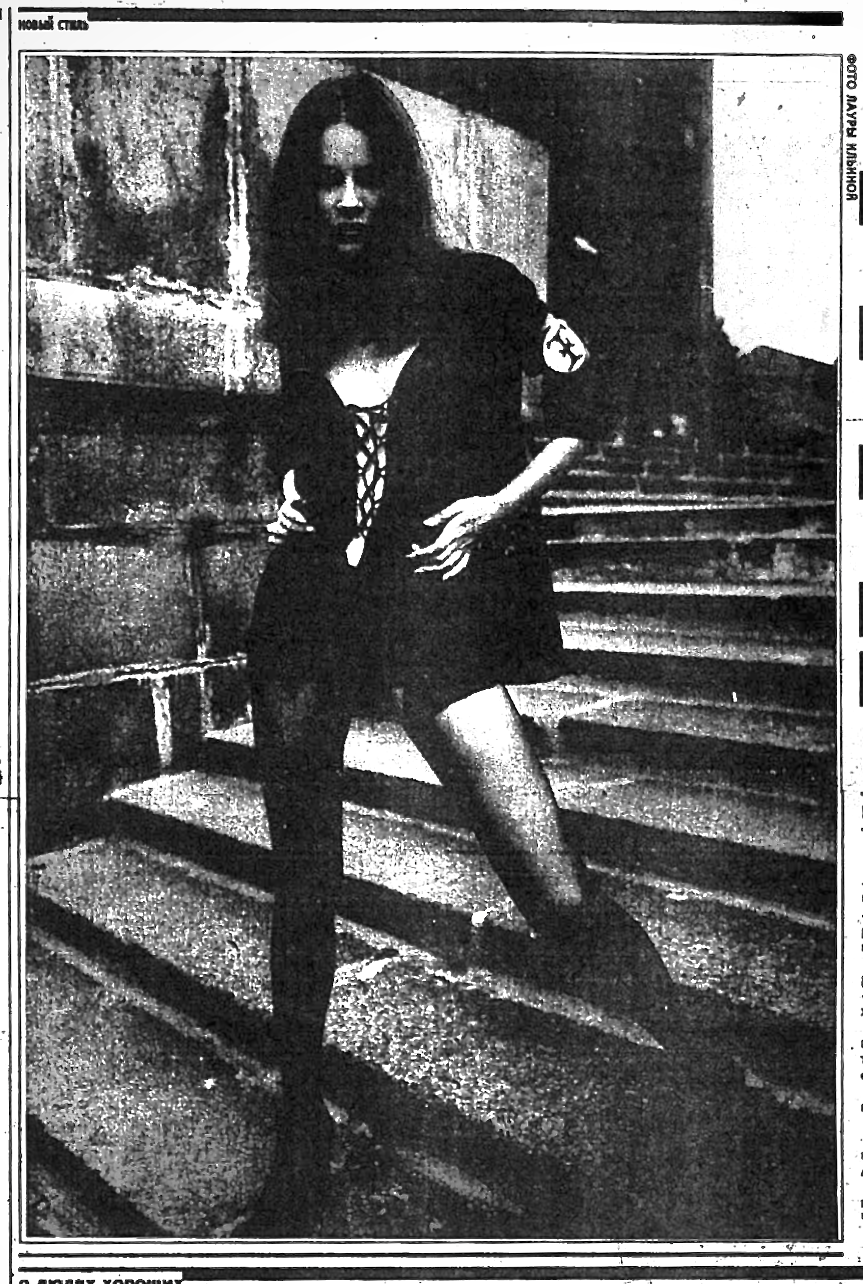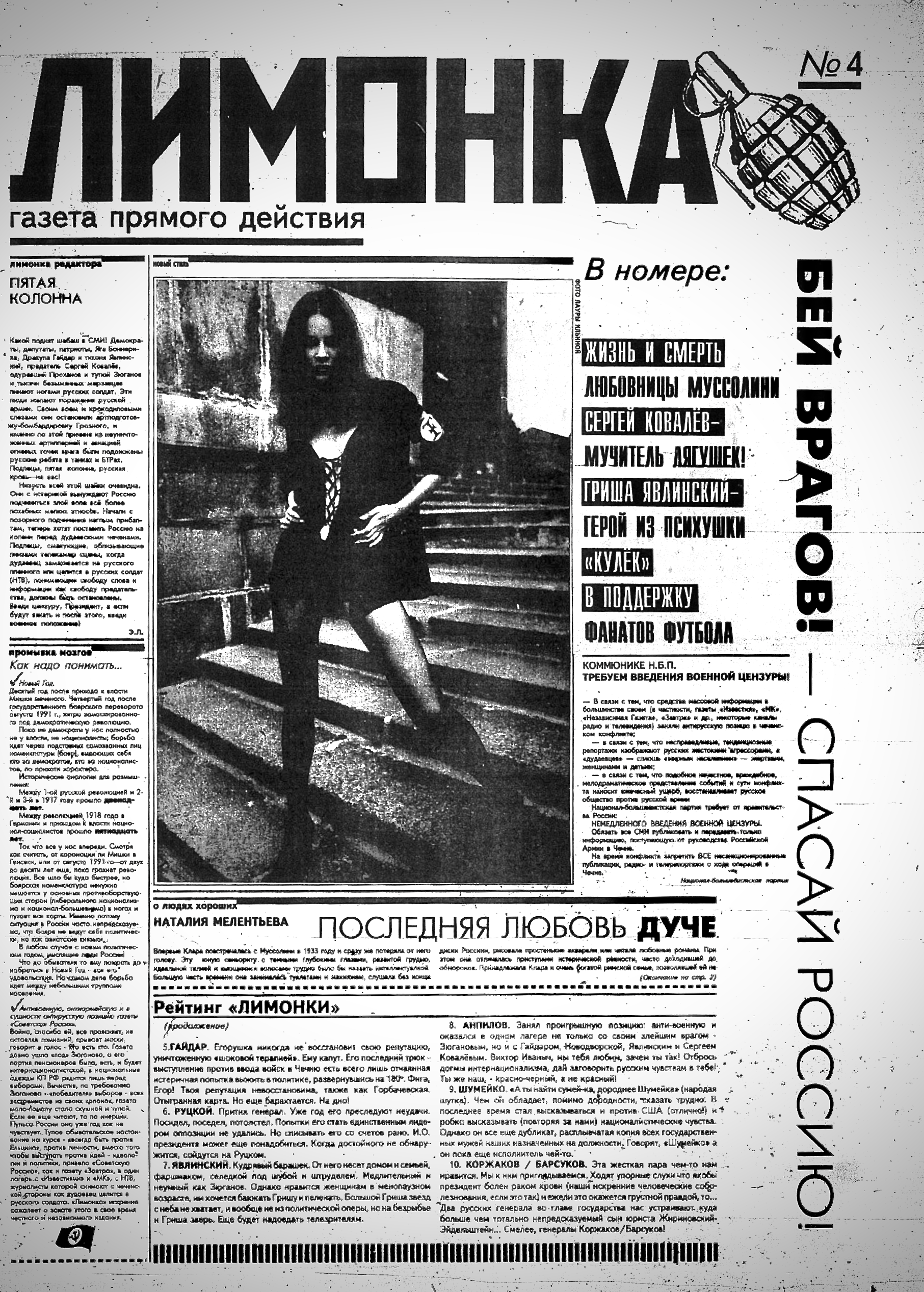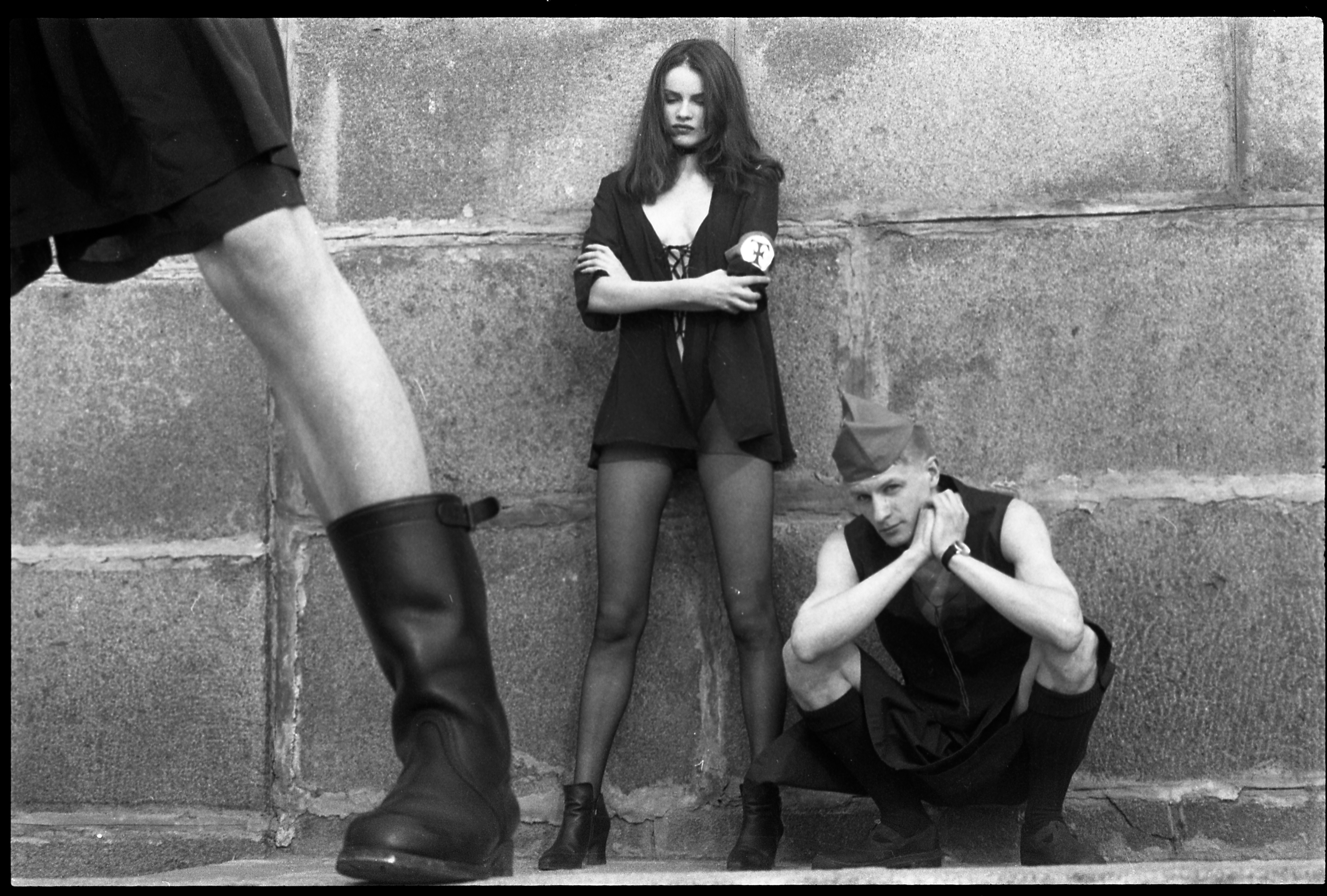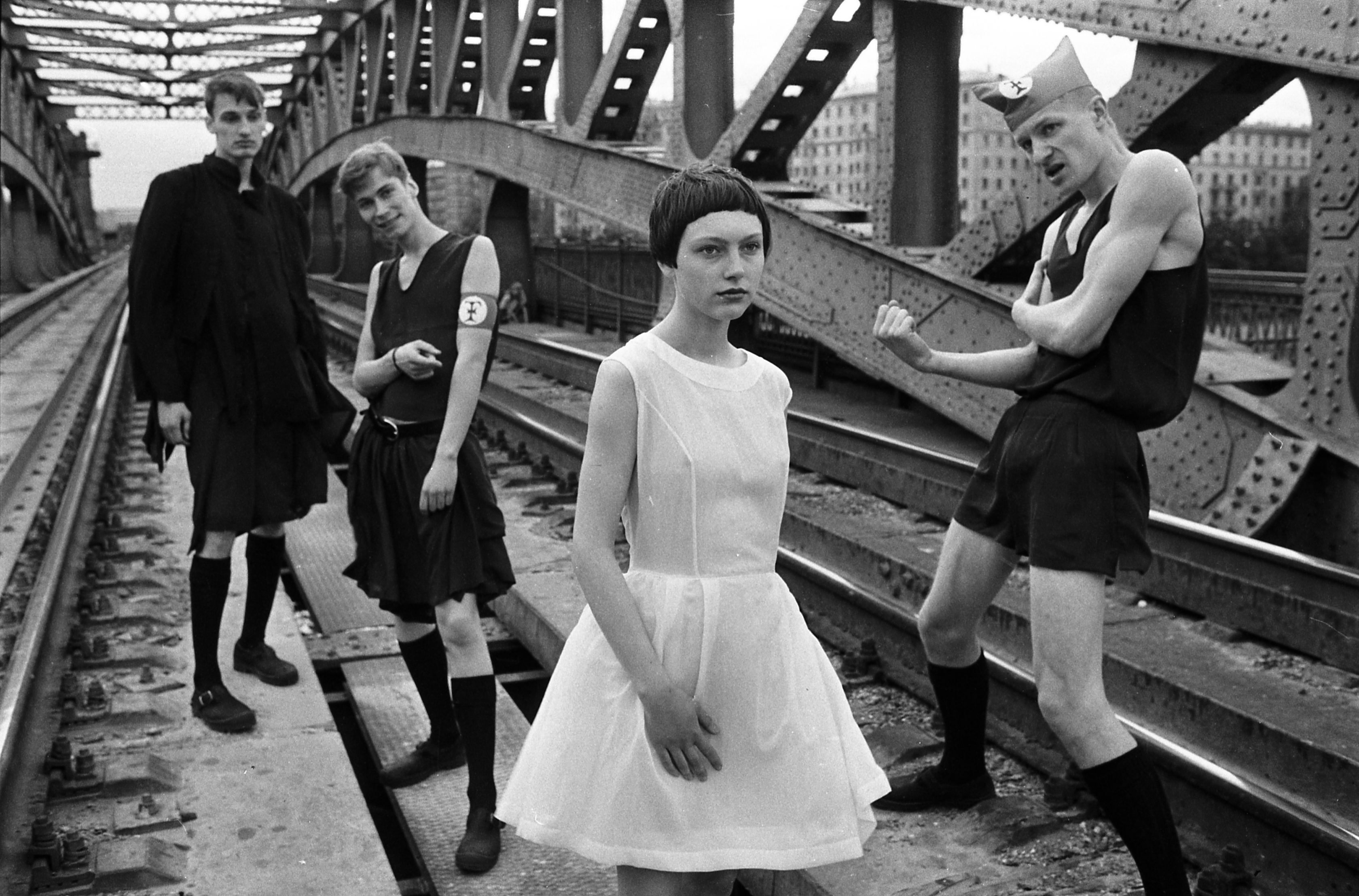Filed Under: Print > Commercial advertising > Fascist Fashion Between Counterculture and Mainstream
Fascist Fashion Between Counterculture and Mainstream
[5 items]
The Polushkin Brothers’ collection Fash-Fashion (as in “fascist fashion”) epitomizes the blurry boundaries among counterculture, mainstream, and the world of advertising—and among different ideological positions—in the early to mid-1990s. At the same time, the collection showed how irony or stiob—a form of parody based on overidentification with its own object—could turn into activism or belief, or vice versa, when applied to radical politics.
The Polushkin Brothers, Alik and Nikolai, were pioneers of queer alternative fashion who fashioned recycled materials into hand-sewn clothing and used non-professional models for their photoshoots. Fash-Fashion was conceived as a darkly ironic play on the violent reality and quasi-apocalyptic atmosphere of the early post-Soviet years, in which extravagant luxury, excess, sexual promiscuity, threatening gangsters, and far-right youths all jumbled together. The photos seen here appeared in an ad for Dr. Martens boots, which were becoming very popular among young Russians at the time, and stood as a testament to a widespread fascination with both Western punk culture and Nazi aesthetics. Some of the photographs from the series—which contained clear queer and camp overtones—were subsequently taken, without permission, by Eduard Limonov, who used them for the covers of some early issues of Limonka, the official newspaper of his National Bolshevik Party. As a result, the collection, which began as parody and camp performance, ended up inspiring new forms of sincere, radical political activism.
The Polushkin Brothers, Alik and Nikolai, were pioneers of queer alternative fashion who fashioned recycled materials into hand-sewn clothing and used non-professional models for their photoshoots. Fash-Fashion was conceived as a darkly ironic play on the violent reality and quasi-apocalyptic atmosphere of the early post-Soviet years, in which extravagant luxury, excess, sexual promiscuity, threatening gangsters, and far-right youths all jumbled together. The photos seen here appeared in an ad for Dr. Martens boots, which were becoming very popular among young Russians at the time, and stood as a testament to a widespread fascination with both Western punk culture and Nazi aesthetics. Some of the photographs from the series—which contained clear queer and camp overtones—were subsequently taken, without permission, by Eduard Limonov, who used them for the covers of some early issues of Limonka, the official newspaper of his National Bolshevik Party. As a result, the collection, which began as parody and camp performance, ended up inspiring new forms of sincere, radical political activism.
